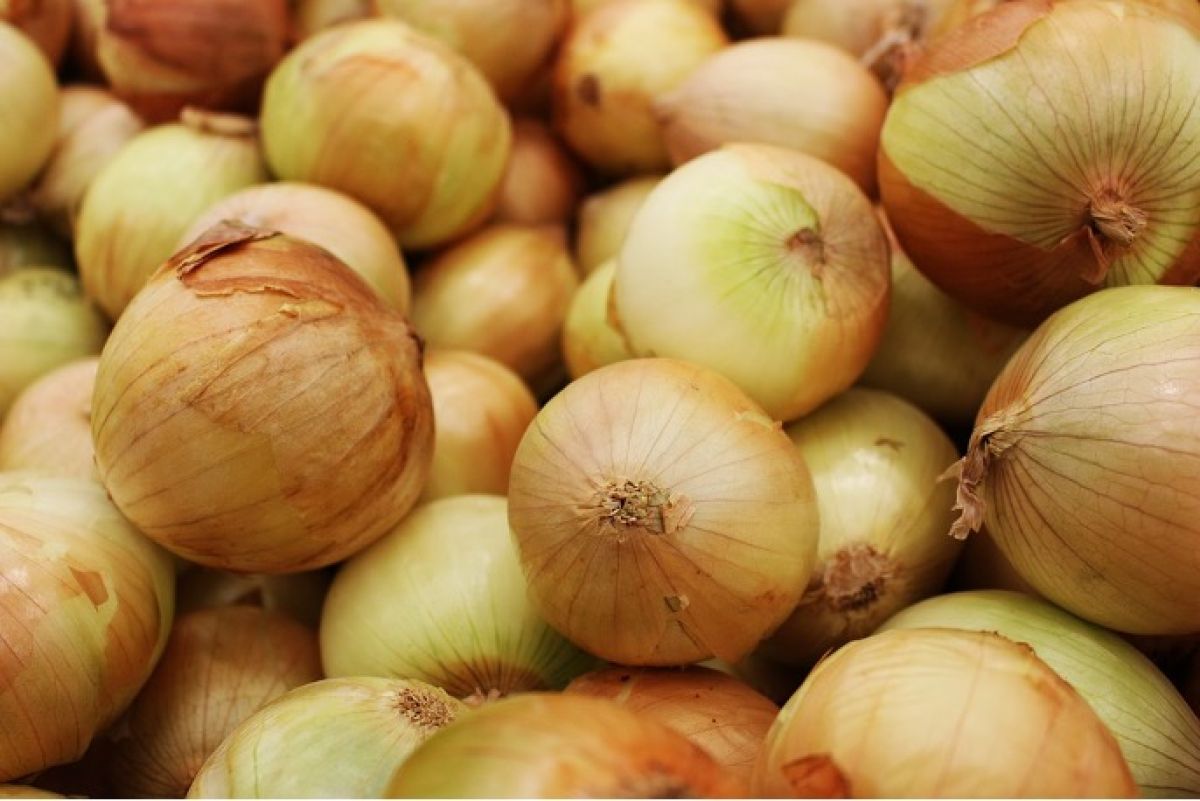No more tears: tearless onions now sold in the UK

On the 18th of January, tearless onions went on sale for the first time in the UK. Gone are the day of wearing goggles in the kitchen: ‘sunions’ are here.
Contrary to what might be expected, sunions are not genetically modified (GM). Instead, they have been specifically crossbred for over 30 years by plant breeder Rick Watson to produce this tear-free strain.
Selective crossbreeding involves choosing onions with desirable characteristics (i.e. onions which don’t make you cry) and making them reproduce with each other. Some of their offspring will contain the alleles (versions of genes) which produce the desired characteristic. The offspring onions are then crossbred again and again over many years to refine and enhance the characteristics of the strain.
This technique is often used in agriculture to us many other benefits, such as seedless fruits, crops with a bigger yield or root vegetables with a larger edible root.
How do sunions wipe away our tears?
Cutting into an onion typically releases allinase enzymes, which convert molecules inside the onion into sulfenic acids. Sulfenic acids then spontaneously rearrange into either a tear-inducing chemical (syn-propanethial-S-oxide, for all you interested chemists) or odorous thiosulfates. It isn’t the smell that causes your eyes to burn, but a separate irritant as an alternative product of the same chemical pathway.
The sunions strain release less of the tear-inducing chemical as a result of cutting into them, so are not as tear-inducing.
Genetic modification can also be used to the same effect. A scientific paper published in 2008 (https://www.ncbi.nlm.nih.gov/pmc/articles/PMC2492635/) showed that modifying the genetic code can significantly reduce production of the tear-inducing molecule in onions, which was deemed ‘lachrymatory factor’ after the Latin for ‘tears’, lacrima. RNA interference was used to silence the genes encoding lachrymatory factor synthase, an enzyme in the chemical pathway producing the lachrymatory factor. Instead more of the alternative smelly product, thiosulfate, is produced.
This method to produce tear-free onions may be quicker than 30+ years of crossbreeding, but GM food still holds false stigma as being in some way harmful or dangerous. This is scientific misinformation – crossbred plants also contain DNA changes due to human manipulation, and are equally completely safe.
If you feel like splashing out on a cool product of scientific experimentations, sunions are now available at Waitrose at £1.50 for 3 (compared to regular onions for 14p each).







